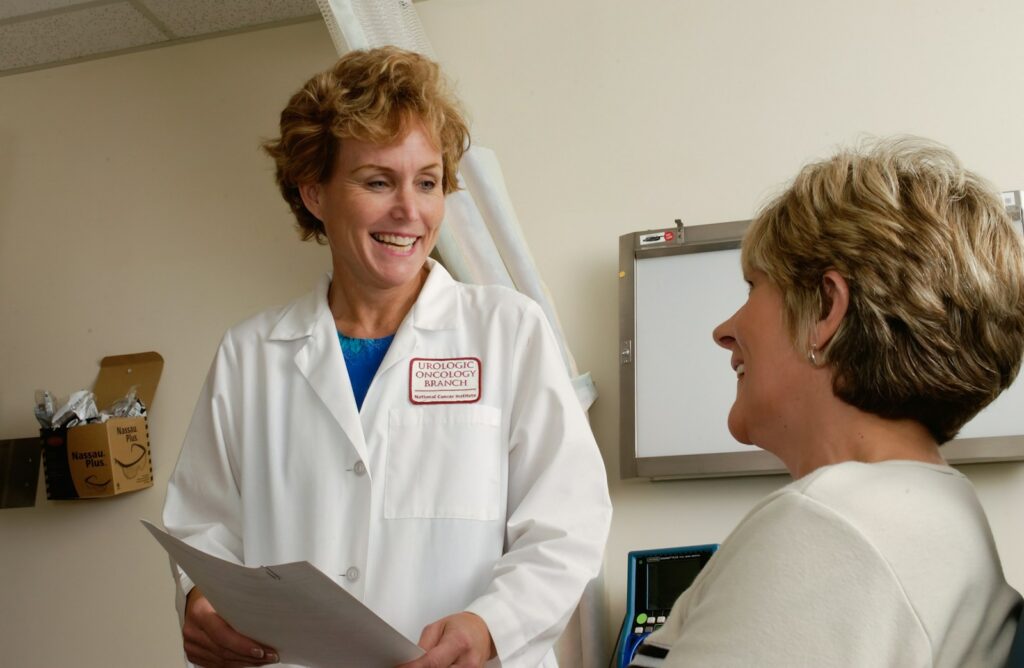Introduction
Gene advice is an essential but usually ignored part of health care. It helps people and families know their genetic health by giving key data into genes illnesses. The role of gene advisers is growing in step with the changes in gene study and testing. This article will teach you about how the role of Genetic Counseling and the growing steps with the changes in gene study and testing.
What is Genetic Counseling?
Definition and Scope
In gene advice, health records and family past are studied, gene tests are given, the facts of the study are looked at, and parents are helped in knowing and making choices on their future path of action. It’s a system that helps people learn and manage to the social, familial, and health-related results of passed down genes to illness.
History of Genetic Counseling
The field of gene advising goes back to the early 20th century, it had a the creation in the 1970s. As our study of genes has grown, it has moved from its basic focus on unusual gene illnesses to cover common illnesses and hard functions.
The Role of a Genetic Counselor
Core Responsibilities
Gene advisers help families who may be in danger of some genetic illnesses by giving data and help. They help patients make choices about their health and reproductive chances by reading the results of gene tests
Skills and Qualifications
A strong background in both counseling and genetics is necessary for a genetic counselor. They must be skilled in safeguarding patient confidentiality, and empathetic and supportive communication of difficult information intelligibly.
Education and Training
Required Degrees
A master’s degree in genetic counseling from an approved program is normally required to work as a genetic counselor. These programs integrate supervised clinical experience with courses in psychosocial theory and genetics.
Certification and Licensing
Genetic advisers need to finish a certification exam given by the American Board of Genetic Counselling (ABGC) in addition to having a degree. In some states, teaching needs a license as well.
Specializations in Genetic Counseling

Prenatal Genetic Counseling
Pre-gene advisers help new families with the chance that their unborn child will have certain gene illnesses. They give details on testing options and their impacts.
Pediatric Genetic Counseling
These counselors specialize in working with kids who have birth abnormalities or genetic problems. They guide families through the alternatives for treatment and help them grasp the diagnosis.
Cancer Genetic Counseling
Counselors for cancer genes study a person’s and their family’s risk for familial cancer disorders. They talk about preventive plans and walk people through gene testing.
Cardiovascular Genetic Counseling
This specialty covers measuring the risk of familial heart disorders and giving information on how to limit these risks.
Genetic Counseling Process
Initial Consultation
The process typically begins with an initial consultation where the genetic counselor gathers detailed family and medical histories.
Risk Assessment
Based on the collected information, the counselor assesses the risk of genetic conditions and explains these risks to the patient.
Genetic Testing
If appropriate, the counselor will recommend genetic tests to gather more information. They explain the testing process and potential outcomes.
Post-Test Counseling
After receiving the test results, the counselor helps the patient understand the implications and decide on the next steps.
Importance of Genetic Counseling
Early Detection and Prevention
Genetic counseling can lead to early detection of genetic disorders, allowing for timely intervention and better management of the condition.
Personalized Medicine
Genetic information can be used to tailor medical treatments to the individual, leading to more effective and personalized care.
Ethical Considerations
Counselors help patients navigate complex ethical issues, such as decisions about pregnancy and the disclosure of genetic information to family members.
Challenges Faced by Genetic Counselors
Emotional and Psychological Challenges
Dealing with patients who are at risk for or have genetic conditions can be emotionally taxing. Counselors must provide support while managing their own stress.
Ethical Dilemmas
Genetic counselors often face ethical dilemmas, such as whether to disclose genetic risks to family members who might be affected.
Keeping Up with Rapid Technological Advances
The field of genetics is rapidly evolving, requiring counselors to continuously update their knowledge and skills.
The Future of Genetic Counseling
Emerging Trends
The integration of genomics into everyday healthcare is a growing trend, making it more mainstream.
Advances in Genetic Research
Ongoing research is uncovering new genetic markers and improving our understanding of genetic diseases, expanding the scope of genetic counseling.
Integration with Digital Health
Digital health tools, such as telehealth and gene databases, are becoming integral to genetic counseling, making it more accessible.
How to Become a Genetic Counselor

Step-by-Step Guide
- Obtain a bachelor’s degree in a related field (e.g., biology, genetics, psychology).
- Enroll in a master’s program in genetic counseling.
- Complete required clinical rotations and coursework.
- Pass the ABGC certification exam.
- Obtain state licensure if required.
Tips for Aspiring Genetic Counselors
- Gain experience through internships or volunteer work in healthcare settings.
- Stay current with advancements in genetics and counseling techniques.
- Develop strong communication and empathetic skills.
Conclusion
In today’s health system, gene advisors are needed because they help patients make use of difficult gene data. They give people the help and advice they need to make good choices about their is and health. The need for ready genetic counselors will only grow as the trade grows, making it a meeting and meaningful job choice.
FAQs
What is the average salary of a genetic counselor?
The average salary of a genetic counselor varies by location and experience but generally ranges from $70,000 to $90,000 per year.
How long does it take to become a genetic counselor?
It typically takes about six to eight years, including four years for a bachelor’s degree and two to three years for a master’s program.
Can genetic counselors prescribe medication?
No, genetic counselors cannot prescribe medication. They provide guidance and support but leave medical treatment decisions to physicians.
What are the most common reasons for gene advising?
Common reasons include a family history of genetic disorders, abnormal prenatal screening results, and a personal history of cancer or other genetic conditions.
Is gene advising covered by insurance?
Many insurance plans cover gene advising, especially if it is deemed medically necessary. However, coverage can vary, so it’s important to check with your insurance provider.
